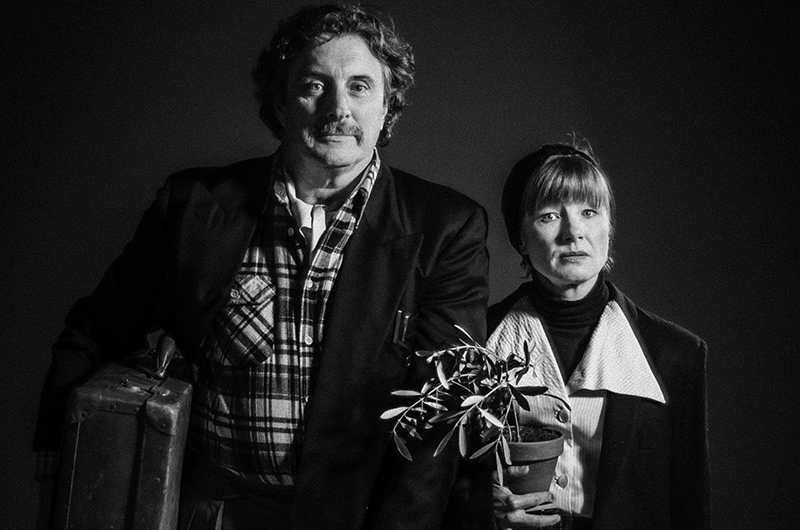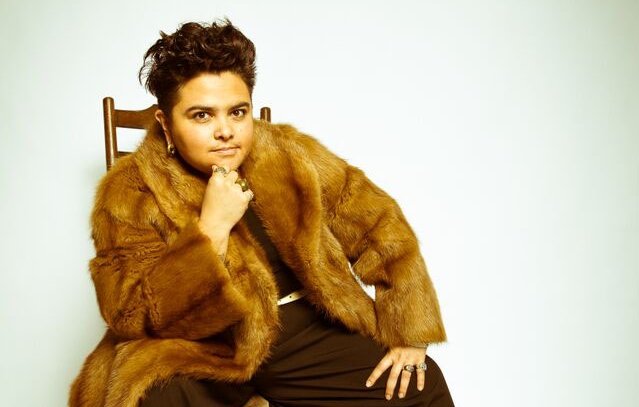“The play comes from the writer Dan’s own experience, about going back and relating to his father and his grandfather,” Balodis continues. “It’s a male-centred story but there is a strong female character – the interpreter at the hospital. She’s from Yugoslavia, which of course doesn’t exist now. So she has experienced that loss of belonging, that loss of cultural identity in terms of place; she experiences not only geographical changes but she also embodies the kind of story when a label for a people changes. She makes Luka – the main character – understand what his grandfather did, understand the reality of his grandfather’s life and the decisions he made.”
Playwright Dan Giovannoni tells us a bit more about the play’s beginnings: “It comes from a couple of things: my dad is an interpreter, he acts as a conduit, as a link between family members who don’t share the same language. He’s been working in nursing homes and in hospitals with migrants who came out in the ’50s. He’s interpreting between old migrants and their children who don’t necessarily share the language of their own parents. They can’t talk about the big stuff. He hears a lot of interesting stories. There’s a parallel there with my own experience with my grandparents. And that thought lodged itself in my mind. So the story is of that experience: I was getting older and my grandparents don’t know how to speak to me of their stories. So it’s about how sad I was about that – if I had felt that when I was younger I would have stuck with high school Italian. I still regret not learning it, but it’s not too late, I suppose.” When Beat speaks to him, Giovannoni has just watched a run-through of his play. “There were some real truth bombs for me. Although it’s a fictional version of the characters, it rings true. And it will ring true for a lot of children of migrants.”
Balodis describes Jurassica as a ‘beautiful play’. “I love it,” she says. “It’s got a very European feel to it. It’s heart-rending and darkly funny, much funnier than you’d expect from its themes. Dan uses comedy and pathos to get the audience on his side. This is a universal human story. Where do you belong? Who do you belong to? What constitutes a sense of belonging? Is it language? Love? Geography?”
Jurassica spans three generations of Italian men, the grandfather, father, and grandson. How is the play structured? “The play moves backwards and forwards in time,” answers the director. “We have those two stories happening at two separate times. There’s an overlap of two separate worlds. We’re going back, to tell multi-generational stories of Italian immigrants. It’s about distances, about how the third generation feels far away from the immigrant generation. The grandchildren of post WWII migrants are now 20 – 30 years old. Their grandparents don’t necessarily speak the same language as their grandparents. So their grandchildren don’t understand the heritage. The second generation had a strong desire to distance themselves from the home culture, to assimilate, which renders the next generation isolated. We need to hear more of those voices.”
Boladis says she has a deep personal connection with the subject matter of Jurassica. “The story resonated with me. I have a Latvian background. My grandparents were WWII migrants and gave up speaking Latvian. They wanted to be Australian, they wanted to fit in. It was fine when I was a kid, they were just fun, they gave me Christmas presents but when I was older and wanted to know about them, about who they were, I couldn’t ask them, I don’t have any Latvian. They’re both dead now. I know in theory the things that my grandparents did. But I can’t understand their experience of the Second World War, of being in a prison camp, of moving to far north Queensland which was completely foreign to them. Personal narrative mythology loses something in translation. You can understand something in theory but you don’t understand the deeper aspects. You don’t realise what a sacrifice your grandparents made for the future generation. I’m turning 30 soon and I wonder – what would it be like to move my entire life? To make my life in an entirely alien culture, to try and live in a foreign language?”
BY LIZA DEZFOULI

